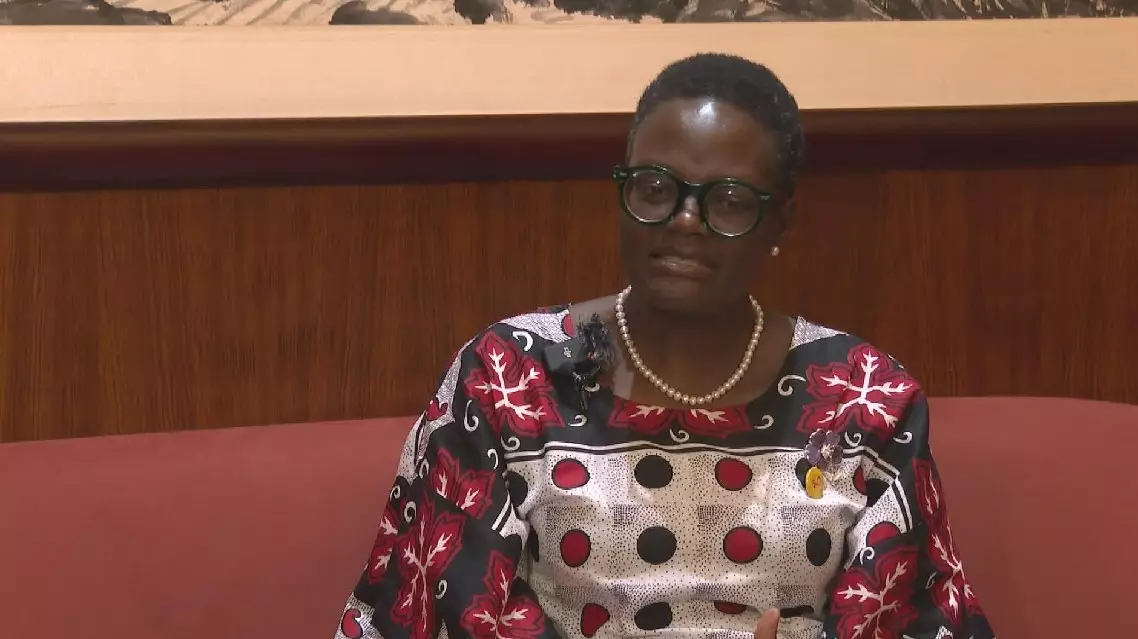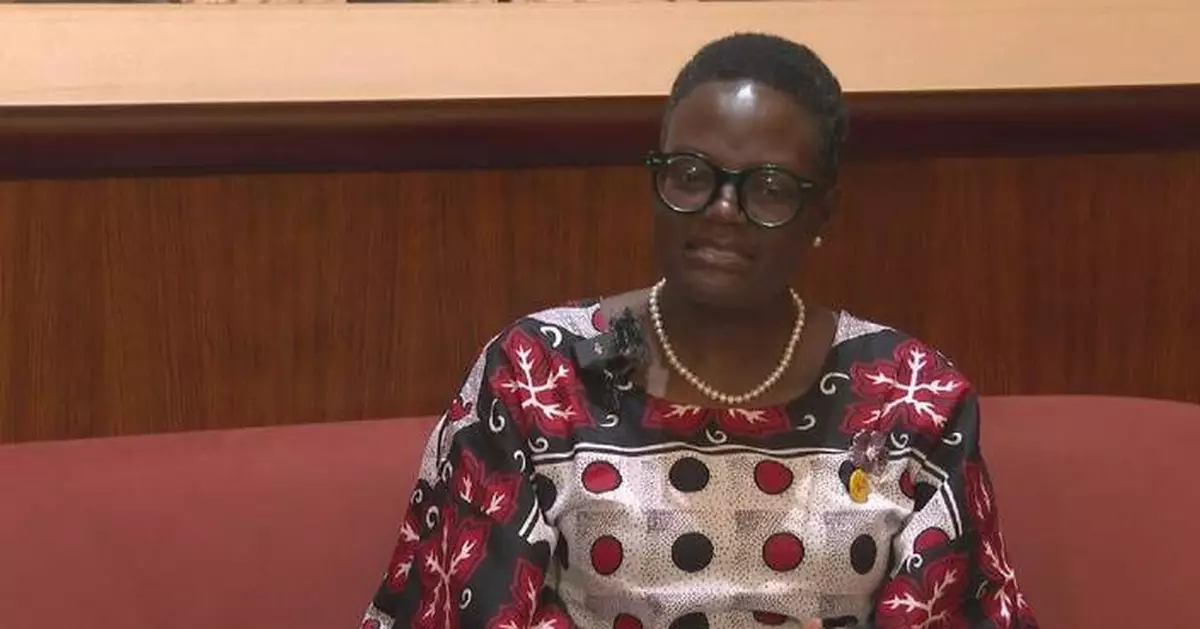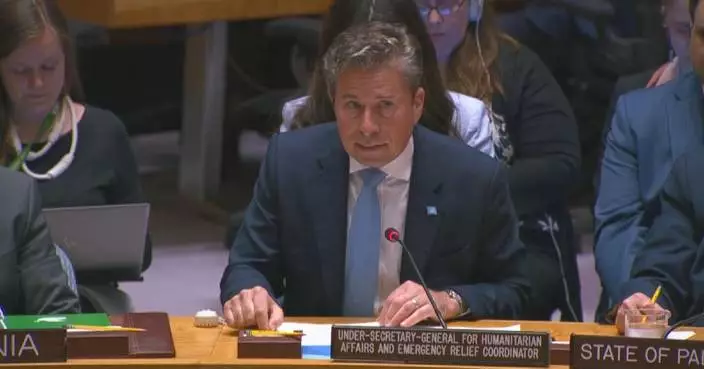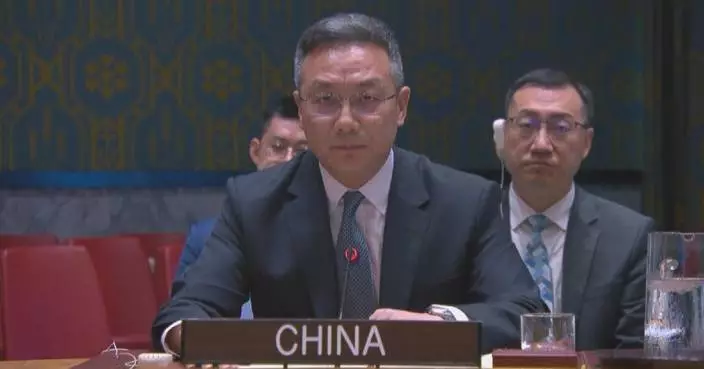Democracy should not be a one-size-fits-all model but rather be tailored to local circumstances, President of the Inter-Parliamentary Union (IPU) Tulia Ackson said to China Global Television Network (CGTN).
Ackson, who is also the Speaker of Tanzania's National Assembly, discussed the whole-process people's democracy in an interview with CGTN during a seminar at the end of August.
She hailed the success of China's unique approach to democracy and socialism, stressing the importance of not enforcing a singular model worldwide.
"I mean, like you rightly said, when you are people-centered, I think some of the things can develop from the people themselves. So it doesn't have to be that democracy --You have one size fits all. So, in a way what China has been able to achieve so far, we have seen that it has its own way of looking at democracy. It has its own way of approaching socialism," said Ackson.
Ackson lauded China's infrastructure progress and societal advancements as inspiring examples for developing nations, saying that democracy should deliver essential social services, foster personal growth, and drive national development.
"We are here. We have seen infrastructure development. We have seen how people have moved from one stage of development to the next. You would want that to every person of this world to have reached there. Now, because we are meeting here as part of the Global South, because of examples China is offering. So, considering democracy, we don't have to have one form of democracy to be conformed by everybody. We have to look at the local circumstances and see how people are responding to those policies. And if those policies are able to offer good social services, if those policies are able to offer personal development, if these policies are able to offer development of a nation together, I think this is what people should learn from," said Ackson.
Last month, the National People's Congress and the Inter-Parliamentary Union jointly organized the 2024 Interregional Seminar on the Achievement of the Sustainable Development Goals for Parliaments of Developing Countries.

Democracy should not be one-size-fits-all model: IPU president
Mounting uncertainty over the U.S. tariff policies under President Donald Trump's administration is fueling distress among the farmers of Iowa state, a U.S. state long regarded as the "granary and breadbasket of America," and disrupting the agricultural sector, particularly its soybean industry.
Iowa's agricultural sector is heavily export-dependent, and the U.S. abuse of tariffs has left the state's farmers uncertain about how to plan for the future amid sudden changes in policy direction.
"It has been really difficult, especially with the stress on the market since the announcement of the tariffs. Any unsold soybeans that we have now will sell at a loss. It's what does the next three years look like in this very uncertain environment with different tariff ideas every day, every week. Like how do we plan as a business for that," said farmer Corey Goodhue.
The uncertainty has pushed some farmers to shift to alternative crops like corn, which currently faces fewer trade obstacles. But the switch comes at a cost. Prices for fuel, fertilizer, and other inputs have surged under the broader tariff regime.
Grant Kimberley, a large-scale farm operator and senior director of market development for the Iowa Soybean Association, said costs are rising across the board.
"We don't ever like to see food and agriculture used as a weapon in a trade disagreement because it doesn’t do either country any good," he said.
Data from agricultural equipment manufacturers showed the cost of machinery in the United States rose 18 percent year on year in spring 2025.
The ripple effects of falling farm income are already being felt in the wider community.
"So I think the tariffs have a trickle-down effect. As for the commodity, if the farmers don't make money, then no one else benefits. John Deere ( the world's leading tractor maker) lays off employees, and this situation just works its way through the community. So small businesses are really struggling with it," said Goodhue.
Policy analysts have warned that the longer-term economic damage could extend well beyond the farm belt.
"At this point of time, it has not yet begun to bite because people have already had inventories of these goods at the lower tariff rates. But soon, at some point of time, and it will be soon that the impact will be felt at grocery store counters. We will see areas where the U.S. was very competitive losing its competitiveness, and with other suppliers taking their position," said Sourabh Gupta, senior Asia-Pacific policy specialist at the Institute for China-America Studies.

US tariff policy turmoil threatens Iowa's farmers, disrupting exports





















































